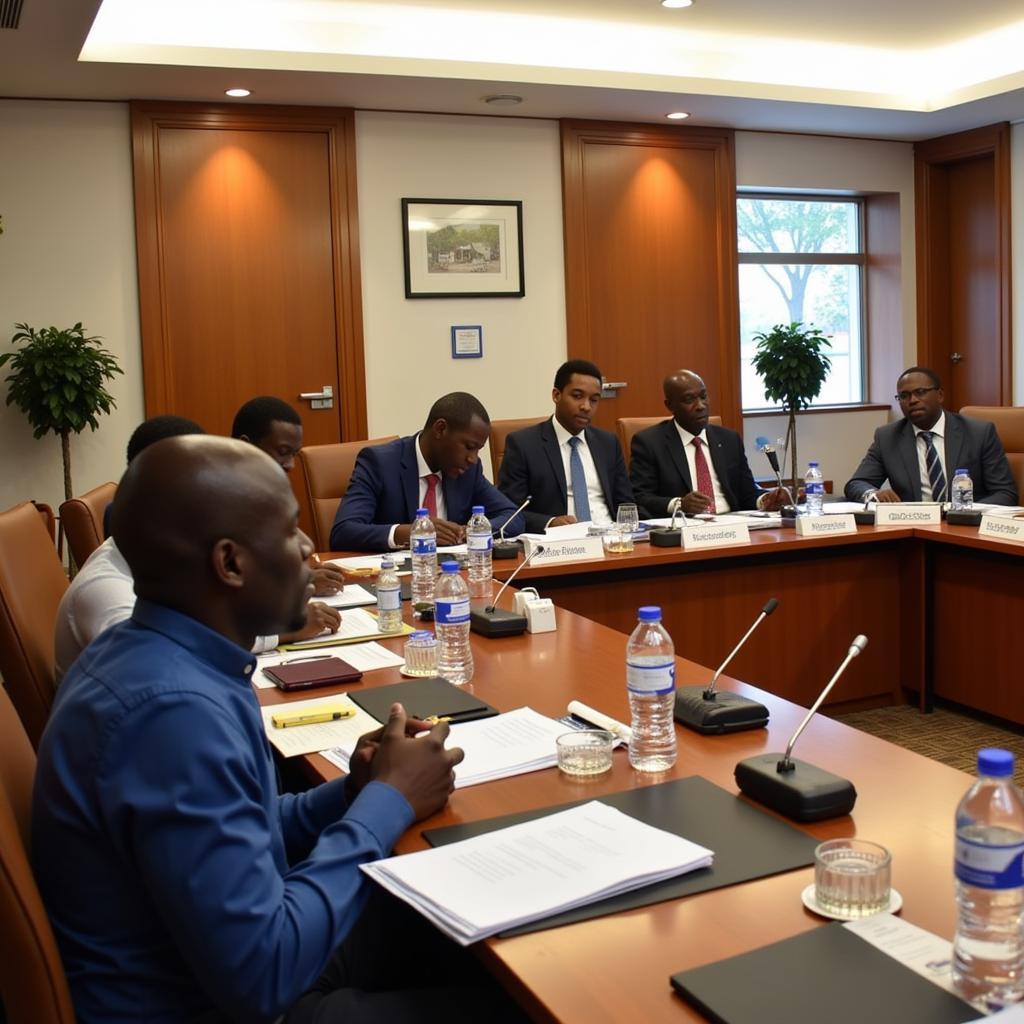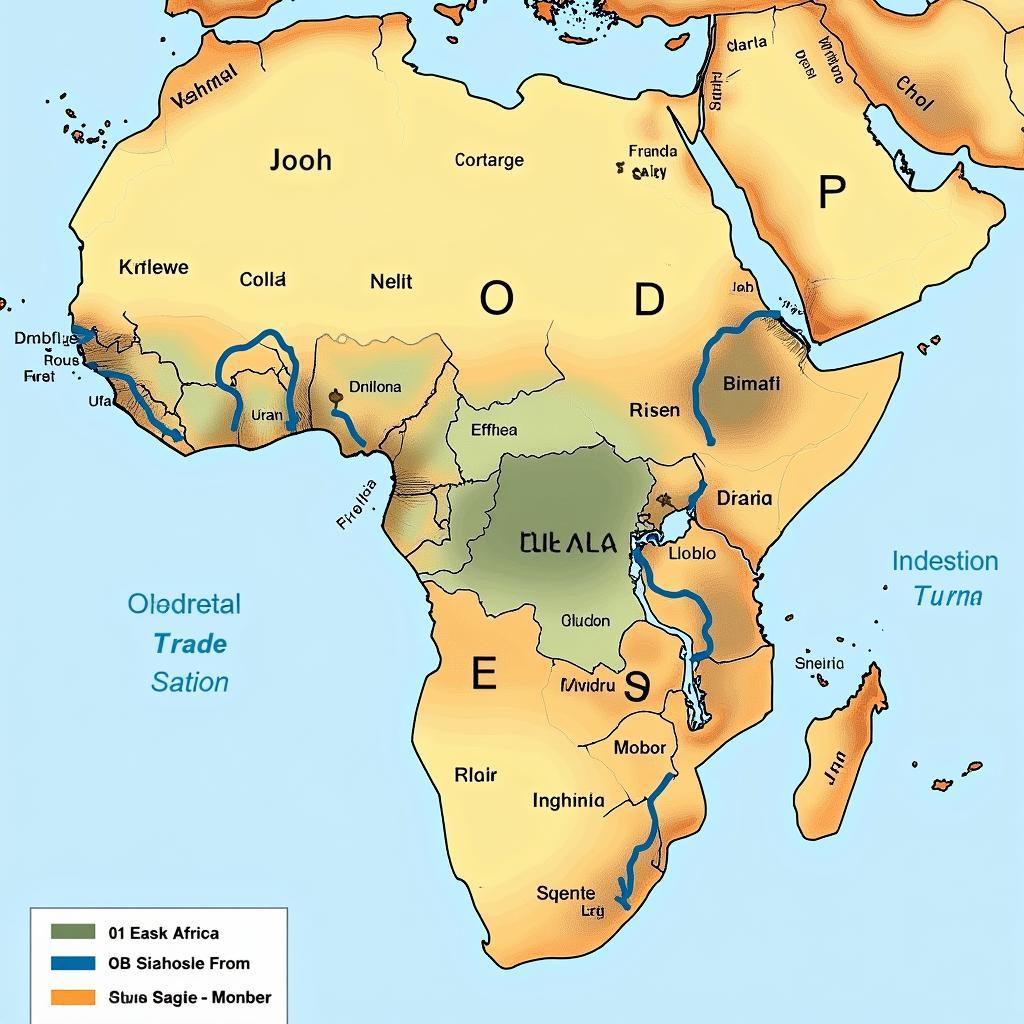The African Committee of Experts on the Rights and Welfare of the Child: A Force for Change
The African Committee of Experts on the Rights and Welfare of the Child (ACERWC) plays a crucial role in promoting and protecting the rights of children across the African continent. Established in 2001, the ACERWC monitors the implementation of the African Charter on the Rights and Welfare of the Child (ACRWC), a comprehensive human rights treaty specifically focused on the rights of children.
Understanding the ACERWC’s Mandate and Functions
The ACERWC’s primary responsibility is to ensure that African states uphold their commitments under the ACRWC. The Committee achieves this through a multifaceted approach that includes:
- Monitoring and Reporting: The ACERWC reviews periodic reports submitted by state parties on their progress in implementing the ACRWC’s provisions. These reports provide valuable insights into the challenges and successes encountered by states in upholding children’s rights.
- Country Visits: The Committee conducts visits to state parties to assess the situation of children’s rights on the ground. These visits allow the ACERWC to engage directly with government officials, civil society organizations, and children themselves to gain a comprehensive understanding of the realities facing children in different contexts.
- Individual Complaints: The ACERWC can receive and adjudicate complaints from individuals or groups alleging violations of children’s rights by state parties. This mechanism provides a crucial avenue for redress when national remedies have been exhausted or are unavailable.
- Developing General Comments and Guidelines: The ACERWC issues authoritative interpretations of the ACRWC’s provisions through general comments and guidelines. These documents provide valuable guidance to state parties on their legal obligations and best practices in implementing the Charter’s principles.
 African Committee Meeting
African Committee Meeting
Key Areas of Focus for the ACERWC
The ACERWC addresses a wide range of children’s rights issues, including:
- Child Marriage: The Committee has been vocal in condemning child marriage as a harmful practice that violates the rights of girls. The ACERWC advocates for legal reforms to raise the minimum age of marriage to 18 and for comprehensive measures to address the root causes of child marriage, such as poverty and gender inequality.
- Child Labor: Recognizing the detrimental impact of child labor on children’s health, education, and development, the ACERWC works to eliminate all forms of child labor. The Committee promotes the ratification and implementation of international labor standards and encourages states to develop national action plans to combat child labor effectively.
- Right to Education: The ACERWC emphasizes the importance of quality education for all children. The Committee calls upon states to ensure free and compulsory primary education and to make secondary education accessible to all children. The ACERWC also advocates for inclusive education systems that cater to the needs of children with disabilities.
- Children in Conflict with the Law: The ACERWC promotes a child-friendly justice system that upholds the rights of children in contact with the law. The Committee emphasizes the principles of restorative justice, diversion programs, and alternatives to detention for children. The ACERWC also advocates for the protection of children from torture, inhuman, or degrading treatment or punishment.
The ACERWC’s Role in Promoting Regional and International Cooperation
The ACERWC actively collaborates with other human rights mechanisms, including:
- The African Commission on Human and Peoples’ Rights (ACHPR): The ACERWC works closely with the ACHPR, the main human rights body of the African Union, to ensure a comprehensive approach to protecting and promoting children’s rights within the African human rights system.
- The UN Committee on the Rights of the Child (CRC): The ACERWC and the CRC coordinate their efforts to promote the implementation of both the ACRWC and the UN Convention on the Rights of the Child (CRC), the most widely ratified human rights treaty in history. This collaboration ensures consistency and strengthens the global framework for protecting children’s rights.
- Civil Society Organizations: The ACERWC recognizes the crucial role of civil society organizations in advocating for children’s rights. The Committee actively engages with NGOs and other civil society actors to share information, coordinate advocacy efforts, and strengthen the implementation of the ACRWC at the national level.
Challenges and Opportunities
The ACERWC faces numerous challenges in fulfilling its mandate, including:
- Limited Resources: The ACERWC, like many human rights mechanisms, operates with limited financial and human resources. This can hinder the Committee’s ability to effectively monitor the implementation of the ACRWC and respond to the needs of children across the continent.
- Lack of Political Will: In some cases, progress in implementing children’s rights is hampered by a lack of political will from state parties. This can manifest in the slow or inadequate implementation of legislation, the allocation of insufficient resources to children’s services, or a reluctance to address cultural practices that harm children.
- Security Challenges: Conflicts and instability in some parts of Africa pose significant challenges to the protection of children’s rights. Children are particularly vulnerable in conflict situations, where they may be subjected to violence, displacement, recruitment into armed groups, and denial of access to basic services such as education and healthcare.
Despite these challenges, the ACERWC has made significant strides in advancing the rights of children in Africa. The Committee’s work in raising awareness about children’s rights, promoting legal reforms, and holding states accountable for their obligations has contributed to positive changes in the lives of countless children.
The Future of the ACERWC
As the primary guardian of children’s rights in Africa, the ACERWC will continue to play a pivotal role in shaping a future where all children’s rights are respected, protected, and fulfilled. The Committee’s ongoing efforts to strengthen the implementation of the ACRWC, promote regional and international cooperation, and engage with civil society will be crucial in addressing the complex challenges facing children in Africa today.
Frequently Asked Questions
What is the African Charter on the Rights and Welfare of the Child?
The African Charter on the Rights and Welfare of the Child (ACRWC) is a human rights treaty specifically focused on the rights of children in Africa. It outlines a comprehensive set of rights and principles aimed at ensuring the well-being and development of all children on the continent.
How does the ACERWC hold states accountable for violating children’s rights?
The ACERWC reviews periodic reports from state parties, conducts country visits, receives individual complaints, and issues general comments and guidelines to promote compliance with the ACRWC.
What are some of the key achievements of the ACERWC?
The ACERWC has contributed to raising awareness about children’s rights, promoting legal reforms, and holding states accountable for their obligations under the ACRWC.
Need support? Contact us 24/7:
- Phone: +255768904061
- Email: kaka.mag@gmail.com
- Address: Mbarali DC Mawindi, Kangaga, Tanzania.
